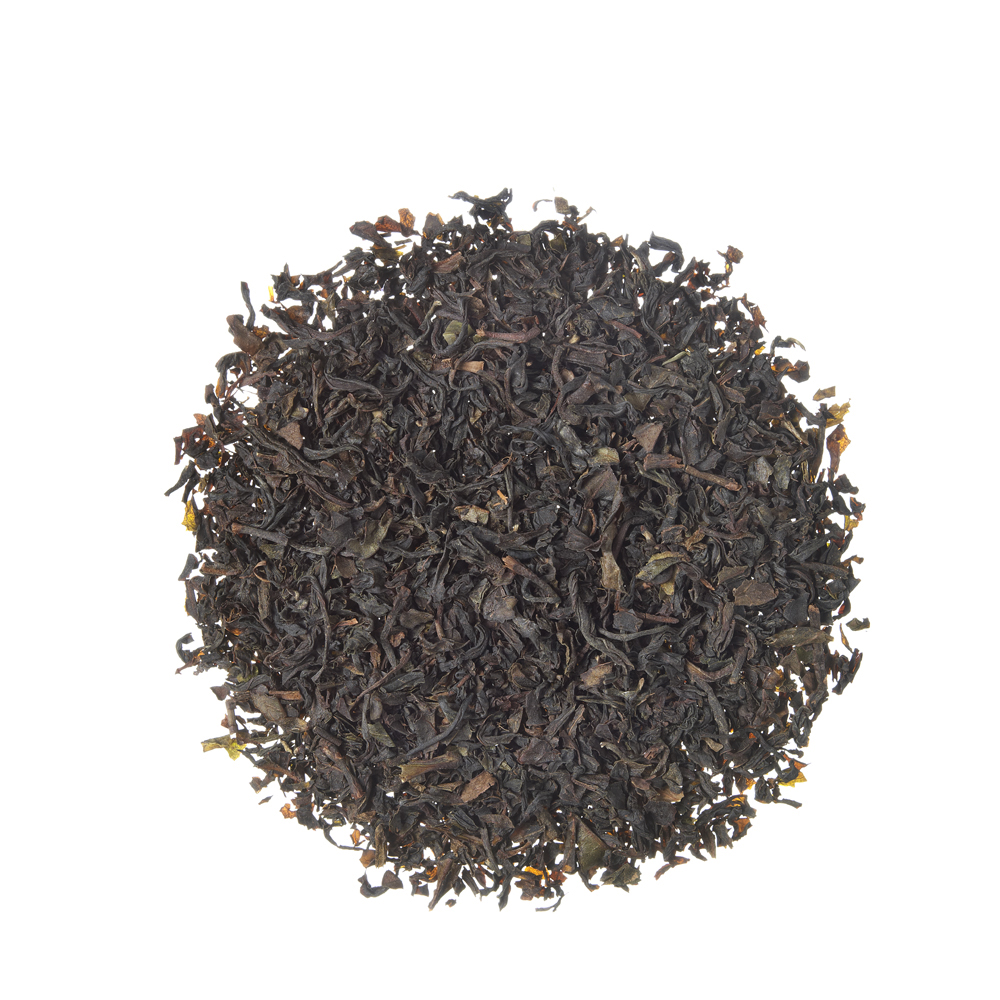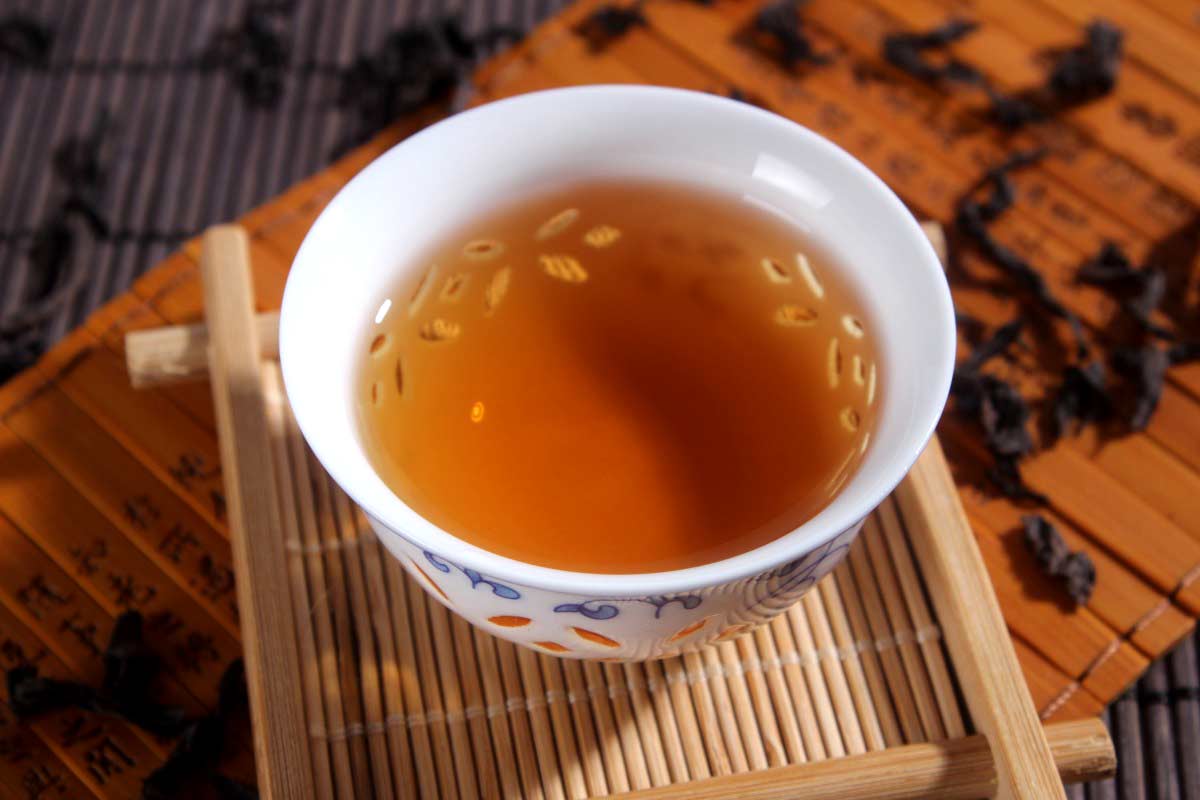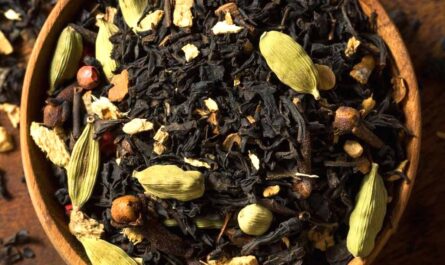What are some of the Nilgiri tea health benefits, nutrition, recipes, & side effects? The ideal amount of Nilgiri tea to drink daily depends on individual factors and preferences. By considering your health status, listening to your body, and seeking guidance when needed, you can find the perfect balance to enjoy this delightful beverage without overdoing it. In this article, we will share some of Nilgiri tea’s health benefits, nutrition, recipes, & side effects. Keep reading.
Nutritional facts of Nilgiri tea
Nilgiri tea, named after the picturesque Nilgiri mountains in southern India where it is grown, is a type of black tea renowned for its unique flavor profile and health benefits. This tea is cultivated at high altitudes, where the cool climate and fertile soil impart distinctive characteristics to the tea leaves.
Rich in Antioxidants and Nutrients
Nilgiri tea is packed with antioxidants, such as flavonoids and catechins, which help combat oxidative stress and inflammation in the body. These antioxidants play a vital role in promoting overall health and reducing the risk of chronic diseases, including heart disease and certain types of cancer. Additionally, Nilgiri tea contains essential nutrients like vitamins (e.g., vitamin C, vitamin K) and minerals (e.g., potassium, magnesium), which are crucial for maintaining optimal health and well-being.
Unique Flavor Profile
One of the distinguishing features of Nilgiri tea is its exquisite flavor profile. The tea boasts a delicate yet robust taste with floral undertones and hints of fruitiness. Unlike other black teas, Nilgiri tea tends to be less astringent and smoother on the palate, making it a favorite among tea enthusiasts worldwide. Whether enjoyed hot or cold, Nilgiri tea offers a refreshing and invigorating drinking experience that delights the senses.
Aids in Digestion and Weight Management
Consuming Nilgiri tea regularly can promote digestive health and aid in weight management. The tea contains compounds that stimulate the digestive system, helping to alleviate bloating, indigestion, and constipation. Moreover, Nilgiri tea has been shown to boost metabolism and enhance fat burning, making it a valuable addition to a balanced diet and active lifestyle for those looking to manage their weight effectively.
Cultivation and Production
Nilgiri tea is cultivated with great care and expertise in the Nilgiri mountains of southern India. The tea bushes thrive in the cool, misty climate of the region, where they are carefully tended by skilled tea farmers. The leaves are hand-picked at the peak of freshness and then meticulously processed to preserve their flavor and nutritional properties. From plucking to packaging, every step of the production process is carried out with precision and dedication to ensure that consumers receive the highest quality Nilgiri tea.
Versatile and Refreshing
Whether enjoyed as a morning pick-me-up, an afternoon indulgence, or a soothing bedtime beverage, Nilgiri tea is a versatile drink that can be enjoyed at any time of day. Its refreshing taste and invigorating aroma make it the perfect companion for moments of relaxation and rejuvenation. Whether brewed hot and served plain or infused with spices and sweeteners to create a flavorful chai latte, Nilgiri tea never fails to delight the senses and uplift the spirit.
How much Nilgiri tea to drink every day?
Nilgiri tea, a type of black tea originating from the Nilgiri hills in Southern India, offers a unique flavor profile and numerous health benefits. When it comes to daily consumption, it’s essential to strike a balance to reap the maximum advantages without overindulging.
Exploring Optimal Daily Intake
Determining the ideal amount of Nilgiri tea to consume daily involves several factors, including personal preferences, health status, and tolerance to caffeine. While there isn’t a one-size-fits-all recommendation, experts generally suggest moderation.
Considering Health Benefits and Risks
Nilgiri tea contains antioxidants, which may help combat oxidative stress and reduce the risk of certain diseases. However, excessive consumption could lead to potential side effects such as insomnia, increased heart rate, or digestive issues.
Listening to Your Body’s Signals
Individual responses to caffeine and other components in Nilgiri tea vary. Paying attention to how your body reacts can guide you in determining your daily intake. If you experience jitteriness or difficulty sleeping, it might be a sign to cut back.
Consulting with Healthcare Professionals
For those with specific health conditions or concerns, seeking advice from healthcare professionals is crucial. They can provide personalized recommendations based on your medical history and overall well-being.
Incorporating Variety in Tea Choices
While Nilgiri tea offers its own set of benefits, incorporating a variety of teas into your routine can provide a broader spectrum of nutrients and flavors. Experimenting with different types of tea ensures a diverse intake of beneficial compounds.
Practicing Mindful Consumption
Incorporating Nilgiri tea into your daily routine mindfully can enhance the experience and ensure you derive the most benefits. Savor each sip, and be conscious of how it makes you feel physically and mentally.
What is the best time to drink Nilgiri tea?
Health benefits of Nilgiri tea:
Nilgiri tea, originating from the Nilgiri hills in India, is renowned for its distinct flavor and numerous health benefits. This exquisite tea is derived from the Camellia sinensis plant, cultivated in the lush Nilgiri region, characterized by its high altitude and favorable climate. Here are some of the health benefits of Nilgiri tea:
1. Rich in Antioxidants
Nilgiri tea is abundant in antioxidants, such as catechins and flavonoids, which help combat oxidative stress in the body. These powerful compounds protect cells from damage caused by harmful free radicals, thereby promoting overall health and well-being.
2. Boosts Immune System
Regular consumption of Nilgiri tea can enhance the immune system’s functioning, thanks to its high concentration of vitamins and minerals. It provides a natural defense against infections and diseases, keeping the body resilient and protected.
3. Supports Heart Health
Nilgiri tea is beneficial for cardiovascular health, as it helps lower cholesterol levels and regulates blood pressure. The flavonoids present in the tea promote healthy blood circulation, reducing the risk of heart diseases and strokes.
4. Aids in Weight Management
For individuals looking to manage their weight effectively, Nilgiri tea can be a valuable addition to their diet. It boosts metabolism and aids in fat oxidation, assisting in weight loss and maintenance when combined with a balanced diet and regular exercise.
5. Improves Digestive Health
The consumption of Nilgiri tea is associated with improved digestive health, as it possesses anti-inflammatory properties that soothe the digestive tract. It can alleviate symptoms of indigestion, bloating, and nausea, promoting overall gastrointestinal well-being.
6. Enhances Mental Alertness
Nilgiri tea contains caffeine and L-theanine, which work synergistically to improve cognitive function and mental alertness. It enhances focus, concentration, and memory, making it an ideal beverage for boosting productivity and brainpower.
7. Promotes Dental Health
The natural fluoride content in Nilgiri tea contributes to maintaining optimal dental health by strengthening tooth enamel and preventing cavities. Additionally, its antimicrobial properties help combat oral bacteria, reducing the risk of gum disease and bad breath.

8. Supports Bone Health
Regular consumption of Nilgiri tea can benefit bone health, as it contains essential minerals like calcium and manganese. These nutrients help strengthen bones and prevent conditions such as osteoporosis, promoting overall skeletal strength and integrity.
9. Relieves Stress and Anxiety
Nilgiri tea possesses calming properties that help alleviate stress and anxiety levels. The act of sipping a warm cup of tea can induce relaxation and tranquility, promoting a sense of well-being and emotional balance.
10. Hydrates the Body
In addition to its health benefits, Nilgiri tea serves as a refreshing and hydrating beverage. Staying adequately hydrated is essential for maintaining optimal bodily functions, and incorporating Nilgiri tea into one’s daily routine can contribute to overall hydration.
11. Enhances Skin Health
The antioxidants found in Nilgiri tea play a significant role in promoting skin health by combating free radical damage and reducing signs of aging. Regular consumption can result in a clearer complexion and a more youthful appearance.
12. Regulates Blood Sugar Levels
For individuals with diabetes or those at risk of developing the condition, Nilgiri tea can be beneficial in regulating blood sugar levels. Its natural compounds help improve insulin sensitivity and prevent sudden spikes in blood glucose.
13. Alleviates Respiratory Issues
Nilgiri tea possesses decongestant properties that can help alleviate respiratory issues such as coughs, colds, and sinus congestion. Its soothing effect on the throat and respiratory tract provides relief from discomfort associated with these conditions.
14. Boosts Metabolic Rate
Drinking Nilgiri tea can revitalize the body’s metabolic rate, leading to increased energy levels and improved stamina. This boost in metabolism aids in better digestion and nutrient absorption, promoting overall vitality and vitality.
15. Improves Blood Circulation
The flavonoids present in Nilgiri tea promote vasodilation, leading to improved blood circulation throughout the body. This enhanced circulation ensures that vital nutrients and oxygen are efficiently transported to various organs and tissues.
16. Enhances Liver Function
Regular consumption of Nilgiri tea can support liver health by aiding in detoxification processes and promoting the elimination of toxins from the body. It helps maintain optimal liver function, crucial for overall metabolic balance and toxin removal.
17. Reduces Inflammation
The anti-inflammatory properties of Nilgiri tea can help reduce inflammation in the body, providing relief from conditions such as arthritis and inflammatory bowel diseases. Its soothing effect on inflamed tissues promotes comfort and mobility.
18. Provides a Natural Energy Boost
Nilgiri tea offers a natural source of energy, making it an excellent alternative to caffeinated beverages like coffee. Its invigorating properties help combat fatigue and increase alertness without the jittery side effects often associated with coffee consumption.
How to Make Nilgiri Tea
Side effects of Nilgiri tea
Nilgiri tea, renowned for its distinct flavor and aroma, is a popular choice among tea enthusiasts. However, like any other consumable, it may come with its set of side effects that individuals should be aware of. Understanding these potential repercussions is crucial for making informed decisions about consumption. Health books, guides, exercises, habits, Diets, and more
Possible Adverse Effects on Health
- Insomnia and Restlessness: Consuming Nilgiri tea, especially in excessive amounts or close to bedtime, may lead to difficulty falling asleep or experiencing restlessness during the night. This could disrupt one’s sleep pattern and impact overall well-being.
- Increased Heart Rate: The caffeine content in Nilgiri tea can cause a temporary increase in heart rate. While moderate consumption may not pose a significant risk for most individuals, those sensitive to caffeine should be cautious to avoid potential palpitations or irregular heartbeat. Fitness – Meditation – Diet – Weight Loss – Healthy Living – Yoga
- Digestive Disturbances: Some individuals may experience digestive issues such as stomach upset, acid reflux, or diarrhea after consuming Nilgiri tea. These symptoms could be exacerbated by factors like consuming tea on an empty stomach or sensitivity to certain compounds present in the tea leaves.
- Anxiety and Jitters: Excessive intake of caffeine from Nilgiri tea can trigger feelings of anxiety, nervousness, or jitters in susceptible individuals. This may manifest as an increased sense of unease or agitation, particularly in those with pre-existing anxiety disorders. RPM 3.0 – 60% CONVERSION & Money for Affiliate Marketing
- Dehydration: While tea is often perceived as a hydrating beverage, the diuretic properties of caffeine can contribute to increased urination and potential dehydration if adequate fluid intake is not maintained alongside Nilgiri tea consumption.
- Interference with Medications: Certain compounds present in Nilgiri tea may interact with medications, affecting their absorption, metabolism, or efficacy. Individuals taking prescription drugs should consult with a healthcare professional to ensure there are no adverse interactions.
- Risk of Osteoporosis: Excessive consumption of caffeine, as found in Nilgiri tea, may interfere with calcium absorption in the body, potentially contributing to a higher risk of osteoporosis or bone density loss over time, particularly in individuals with inadequate calcium intake. Tea, Coffee, Energy Drinks, Juice, Beverage, Smoothie, and more
- Pregnancy Concerns: Pregnant individuals are often advised to limit their caffeine intake due to potential risks to fetal development. Nilgiri tea consumption during pregnancy should be moderated to avoid exceeding recommended caffeine limits and minimize any associated risks.
- Potential Allergic Reactions: While rare, some individuals may experience allergic reactions to components present in Nilgiri tea, such as certain proteins or plant compounds. Symptoms could range from mild itching or hives to more severe reactions requiring medical attention.
- Dental Health: The tannins present in Nilgiri tea can contribute to teeth staining over time. Additionally, frequent consumption of acidic beverages like tea may increase the risk of enamel erosion and dental decay if proper oral hygiene practices are not observed. RPM 3.0 – 60% CONVERSION & Money for Affiliate Marketing
Considering Nilgiri Tea Consumption
While Nilgiri tea offers a plethora of flavors and potential health benefits, it’s essential to be mindful of its potential side effects. Moderation is key, especially for individuals sensitive to caffeine or those with pre-existing health conditions. Consulting with a healthcare professional can provide personalized guidance on incorporating Nilgiri tea into a balanced lifestyle while minimizing any associated risks.
Other Interesting Articles
- 21 Da Hong Pao Tea Health Benefits, Recipe, Side Effects
- 23 Shui Jin Gui Tea Health Benefits, Recipe, Time, Side Effects
- 22 Tie Luo Han Tea Health Benefits, Recipe, Side Effects
- 23 Shui Xian Tea Health Benefits, Recipe, Time, Side Effects
- 23 Bai Jiguan Tea Health Benefits, Recipe, Time, Side Effects
- 20 Tieguanyin (Iron Goddess) Tea Health Benefits, Side Effects
- 21 Mi Lan Xiang Dan Con Tea Health Benefits, Side Effects
- 21 Ancient Tree Dan Cong Tea Health Benefits, Side Effects
- 23 Common Disadvantages of Drinking Tea in the Morning
- 20 Disadvantages of Drinking Tea in Your Empty Stomach
- 25 Benefits of Drinking Tea in the Afternoon with Cold Water
- 25 Benefits of Drinking Tea in the Afternoon with Coffee, Cons
- 25 Benefits of Drinking Tea in the Evening with Mint, Cons
- 21 Guan Yin Tea Health Benefits, Recipe, Time, Side Effects
- 23 Dancong Tea Health Benefits, Recipe, Time, Side Effects
- 23 Cassia Tea Health Benefits, Recipe, Time, Side Effects
- 19 Da Yu Lin Tea Health Benefits, Recipe, Time, Side Effects
- 19 Dong Ding Tea Health Benefits, Recipe, Time, Side Effects
- 21 Dong Fang Meiren Tea Health Benefits, Recipe, Side Effects
- 19 Alishan Tea Health Benefits, Recipe, Time, Side Effects



